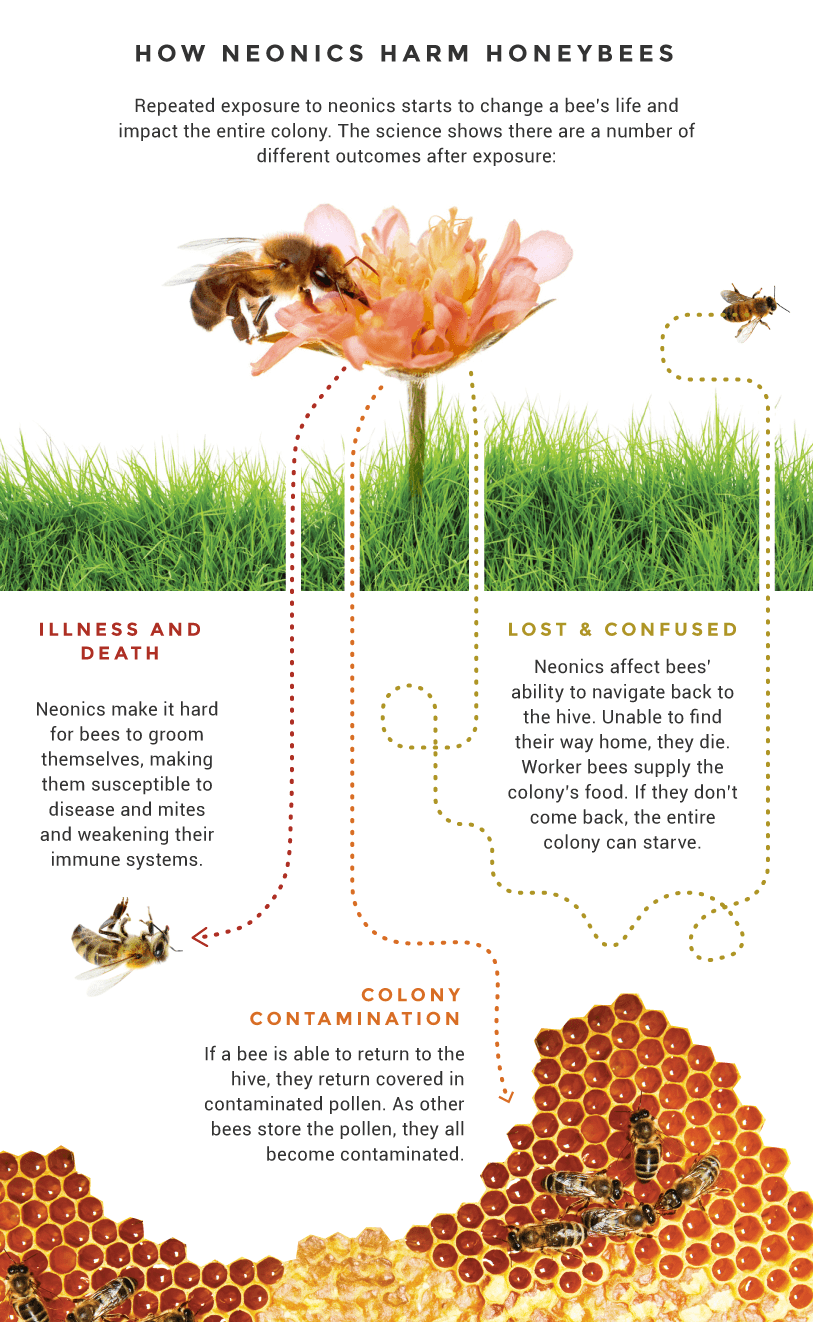Happy National Pollinators Week 2017! Pollinators are so important to life as we know it, as they are responsible for the production of almost one third of the food we eat and are vital to the functioning of healthy ecosystems. Despite their great value, the number of pollinators has been declining recently, with reported population losses of around 30% annually for commercial honey bees since 2006.
While varroa mites, tracheal mites, other parasites and diseases, and loss of habitat and plant diversity have all contributed to the decline in pollinator populations, it is believed that the variable that has done the most damage is a class of pesticides called neonicotinoids, or neonics for short. This type of pesticide is used on cash crops like corn and sunflowers, but is also found in many common residential garden products and nursery plants, meaning it is abundantly available to affect bees and other pollinators. When bees are exposed to neonics in low doses, they are left disoriented and unable to find their way back to their hive, left to fly around until they starve. If they do make it back to the hive, they can contaminate the other bees. In high doses, they are killed by the poison directly.

Image from: http://earthjustice.org/sites/default/files/final-section3.png
Luckily, with your help we can fight back against these deadly poisons and provide more safe habitat and diversity to help protect pollinator populations.
What you can do to save pollinators:
- Join others in your community in taking our Pesticide-Free Yards Pledge!
- Get involved in our Pesticide-Free Yards campaign
- Use toxin free alternatives to pesticides
- Plant native, nectar producing flowers to create more food for bees and other pollinators
- Be sure there are no residual neonicotinoids in your soil from past pesticide use before planting flowers for pollinators
- Ask for and buy neonic-free plants
- Build a bee condo
Here's a map of all those who've taken the Pesticide-Free Yards Pledge!